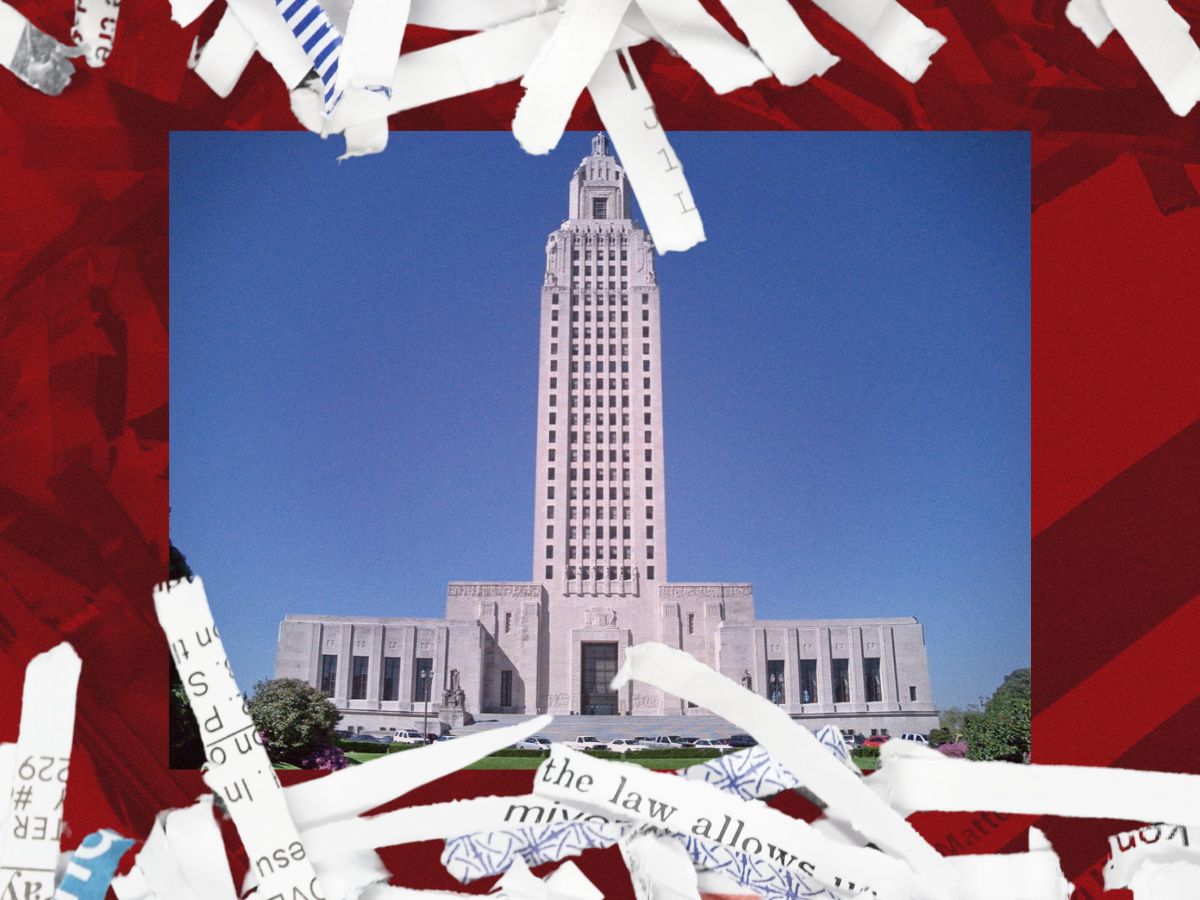American Oversight Statement on Effort to Block Access to Public Records in Louisiana
Louisiana House Bill 767 would limit who can request public records from the Office of the Governor.

American Oversight released the following statement regarding Louisiana HB 767, which would rewrite portions of the Louisiana Public Records Act to restrict access to public documents from the governor’s office.
Statement from American Oversight Interim Executive Director Chioma Chukwu:
“Transparency in Louisiana seems to be on the chopping block this year, with the state legislature making it easier for government officials to operate in the dark and more challenging for the public to obtain records aimed at exposing nefarious outside influences working within and across state lines.
“This bill flies in the face of open government, restricting who can ask for records that belong to the public and placing an extra burden on resident requesters who seek to hold the Louisiana governor accountable. We urge Gov. Landry to reject this bill.”
HB 767 would prohibit non-residents of Louisiana from requesting records held by the governor’s office and require residents to provide proof of their age, name, and residency.
American Oversight regularly requests and obtains documents from governor’s offices that have shined a light on attacks on democracy and issues affecting thousands, such as communications between the offices of Texas Gov. Greg Abbott and Florida Gov. Ron DeSantis about Florida’s migrant transportation program; records from DeSantis’ office showing communications with prominent anti-LGBTQ organizations; and communications between DeSantis and Ginni Thomas, wife of Supreme Court Justice Clarence Thomas.
HB 767 is not the only bill aimed at changing Louisiana’s public records law. Earlier this year, the Louisiana legislature passed a bill that would give local government officials the power to shield records related to business or economic development negotiations. That bill also awaits the governor’s signature.
Other states have also attempted to roll back access to information. Earlier this year, Utah’s governor signed into law a bill shielding government officials’ calendars from the public, which American Oversight condemned as “a shameless attempt to allow officials to hide their activities from public view.”
In Florida, a state with a long-held commitment to transparency, Gov. Ron DeSantis and the state legislature have drastically altered the state’s rules. DeSantis has employed a questionably broad level of executive privilege and helped pass a law shielding his travel records from the public. This year, American Oversight has recently sued DeSantis’ office for its pattern or practice of failing to respond to requests as required by state law.
In Kentucky, legislators introduced a bill that would prevent access to certain types of public records, after having amended the state’s public record law in 2021 to restrict anyone other than Kentucky residents from accessing any of the state’s public records.
Last year, Arizona’s legislature implemented rule changes that require lawmakers to delete most communications within a short time period, allowing them to avoid releasing documents under the state’s public records law. In October, North Carolina’s General Assembly tucked a sweeping change to the state’s public records law into the state budget.